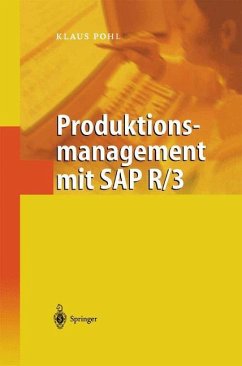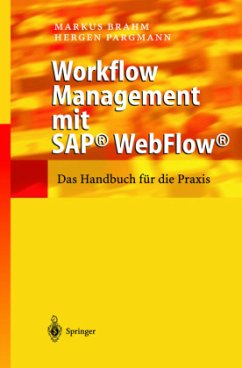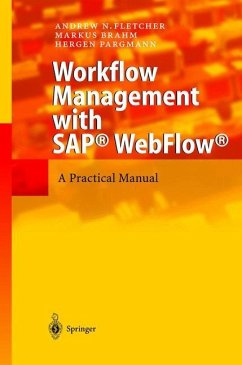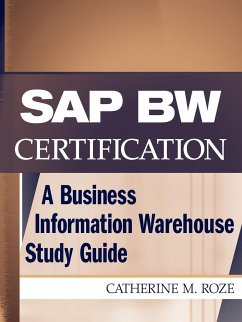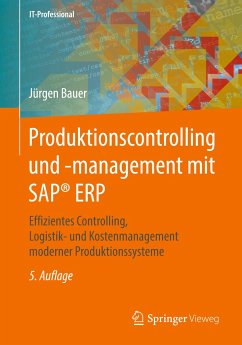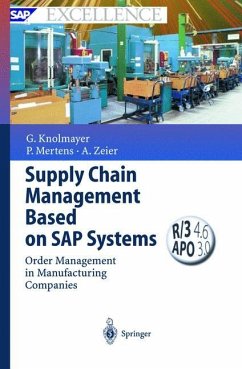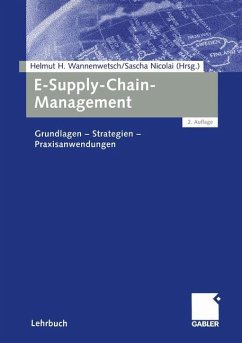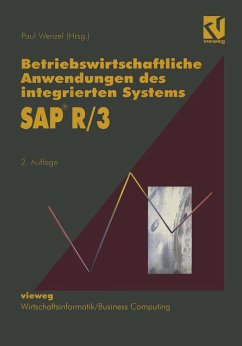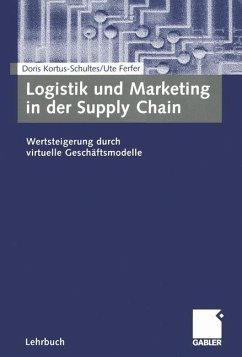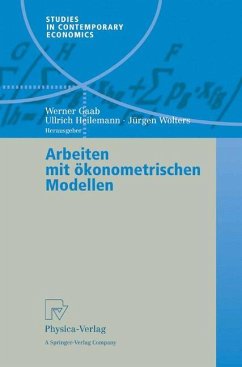
Produktionsmanagement mit SAP R/3
Versandkostenfrei!
Versandfertig in 1-2 Wochen
74,99 €
inkl. MwSt.
Weitere Ausgaben:

PAYBACK Punkte
0 °P sammeln!
Das Buch ist eine übersichtliche Darstellung aller relevanten Fragen eines effizienten Produktionsmanagements mit Hilfe der SAP R/3 Software. Stärken und Grenzen des Produktionsplanungsmoduls PP werden klar aufgezeigt und teilweise durch Fallbeispiele erläutert. Dabei werden auch die möglichen Erweiterungen in einem modernen Supply Chain Management beschrieben. Informationstechnologie und Organisation werden zusammen betrachtet, da nur abgestimmte Konzepte Erfolg bringen. Eine Reihe praktischer Tipps, die im Anhang nochmals chronologisch zusammengefasst sind, helfen dem Management die Weic...
Das Buch ist eine übersichtliche Darstellung aller relevanten Fragen eines effizienten Produktionsmanagements mit Hilfe der SAP R/3 Software. Stärken und Grenzen des Produktionsplanungsmoduls PP werden klar aufgezeigt und teilweise durch Fallbeispiele erläutert. Dabei werden auch die möglichen Erweiterungen in einem modernen Supply Chain Management beschrieben. Informationstechnologie und Organisation werden zusammen betrachtet, da nur abgestimmte Konzepte Erfolg bringen. Eine Reihe praktischer Tipps, die im Anhang nochmals chronologisch zusammengefasst sind, helfen dem Management die Weichen in einem PP-Projekt richtig zu stellen. Das Buch richtet sich gleichermaßen an Praktiker im Bereich Produktionsmanagement sowie an Studierende. TOC:Ausgangssituation: Das SAP-System (Kurzbeschreibung der Gesamtfunktionalität).- Entscheidungsproblem Modul PP (Produktionsplanung). Hauptfunktionen Produktionsplanung und -steuerung: Ein Blick in die Theorie.- PP-Praxis. Besondere Features: Bestandsstrategien.- Reichweitensteuerung.- KANBAN.- EDI.- Vernetzung mehrerer eigener Produktionsstätten.- Integration Lohnarbeitsfirmen.- Bestandscontrolling.- Fertigungsinformationssystem. Das Beste an PP: Basis eines Supply Chain Managements: SCM für "Anfänger".- SCM für "Fortgeschrittene". Fazit für Entscheider.- Anhang: Tipps im Überblick.





